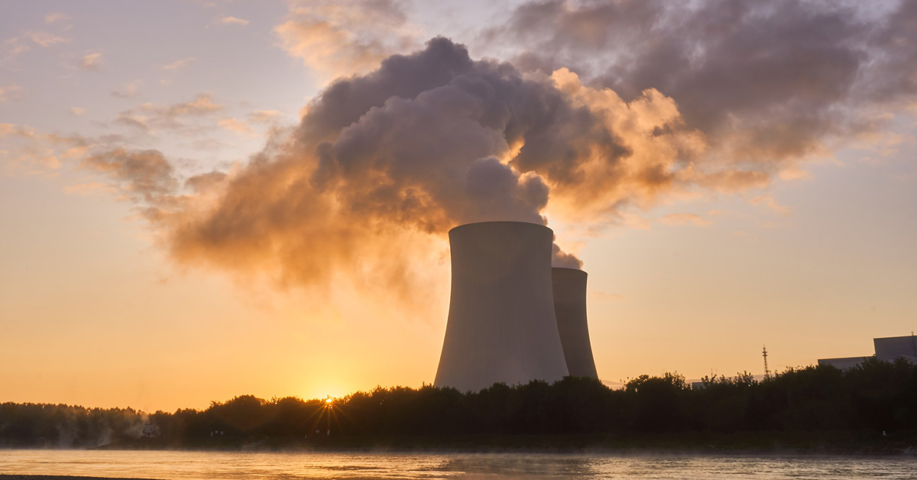Traditional Land of Wabanaki People/Rothesay, NB – In a long hoped-for decision, the federal Impact Assessment Agency of Canada (IAAC) has begun reviewing a formal request from the Coalition for Responsible Energy Development in New Brunswick (CRED-NB) to subject the small modular nuclear reactor (SMR) proposed by NB Power for Point Lepreau on the Bay of Fundy to a full federal Impact Assessment (IA). A final decision from the Minister of Environment, Steven Guilbeault, is anticipated by January 2, 2023.
“This is a victory for citizens seeking oversight and good process,” said Louise Comeau, director of climate change and energy solutions at the Conservation Council of New Brunswick.
NB Power has proposed to build the ARC-100 – a small modular nuclear reactor that is a “first of its kind,” according to the Canadian Nuclear Safety Commission. The reactor design includes using liquid sodium as a coolant, a material that reacts violently on contact with air or water. Sodium-cooled nuclear reactors have never been successfully commercialized. In other countries, attempts to do so have resulted in major environmental cleanups that were more costly than the original reactor builds.
Despite the potential for significant environmental impacts, the ARC-100 SMR is currently exempt from IA. This exemption (due to successful nuclear industry lobbying) means there would be no comprehensive examination of the project’s risks, costs and benefits, and downstream impacts before a decision is made to site one in New Brunswick.
“As early as June of next year, NB Power wants a licence from the nuclear regulator to proceed with site prep for the ARC nuclear reactor. There are many challenges, however, a licence can’t address that an impact assessment can,” noted Ann McAllister, spokesperson for CRED-NB “For instance, what is the economic feasibility of the project? And, given that the ARC SMR has a sodium coolant – meaning its wastes will become a new class of highly radioactive and corrosive waste – what is its impact on existing radioactive waste storage plans? These are just a few of the critical issues the nuclear regulator won’t be weighing in on in deciding whether or not to grant a site prep licence.”
Building SMRs such as the ARC-100 on the Bay of Fundy at Point Lepreau is strongly opposed by both the Passamaquoddy Recognition Group and the Wolastoq Grand Council. Both organizations support the designation request by CRED-NB.
The letter of support from the Passamaquoddy Recognition Group for the designation request noted that the planned location of New Brunswick’s small modular nuclear reactor experiment is within the homeland, Peskotomuhkatihkuk. In his letter to Environment Minister Steven Guilbeault, Chief Hugh Akagi said his organization “strongly supports CRED’s request and trust that you will designate the project for an IA because both the Treaty relationship as well as Canada’s commitments to Indigenous peoples dictates it should be so.”
In their letter of support, the Wolastoq Grand Council noted that they have, on many occasions, stated their concerns relating to the SMR planned for their Homeland and the long-term effects. Grand Chief spasaqsit possesom – Ron Tremblay asked for their ‘Resolution on Nuclear energy developments and nuclear waste use and disposal on Wolastokuk’ to be included in the request. The Resolution quotes Article 29(2) of the United Nations Declaration on the Rights of Indigenous Peoples which states that “States shall take effective measures to ensure that no storage or disposal of hazardous materials shall take place in the homelands of Indigenous peoples without their free, prior and informed consent.”
“If the Minister agrees to grant CRED-NB’s request for an impact assessment, it would be the first nuclear project in Canada to be subject to the Impact Assessment Act,” noted Kerrie Blaise, a lawyer with the Canadian Environmental Law Association. “We’ve seen a gradually rollback of the number and type of nuclear projects subject to impact assessments, despite knowing IAs improve the fairness of decisions and the public’s participation rights.”
The Minister now has 90 days to respond to the request to designate the SMR project for an impact assessment. The IAAC will also put forth a recommendation to the Minister which will include “concerns expressed from the public … and Indigenous groups.” A project-specific webpage has been launched by the Agency, which will be updated as the review proceeds.
-30-
For more information, or an interview, contact:
The CRED-NB request on July 4, 2022 to federal Environment Minister Guilbeault to designate the project for a federal Impact Assessment is HERE. The most recent response from the Impact Assessment Agency of Canada on October 5, 2022 is HERE.
Ann McAllister, spokesperson
Coalition for Responsible Energy Development in New Brunswick (CRED-NB)
Phone: 506-898-1821
Email: annmcallister72@gmail.com
Louise Comeau, director of climate change and energy solutions
Conservation Council of New Brunswick
Phone: 506-238-0355
Email: louise.comeau@conservationcouncil.ca
Recommended links:

